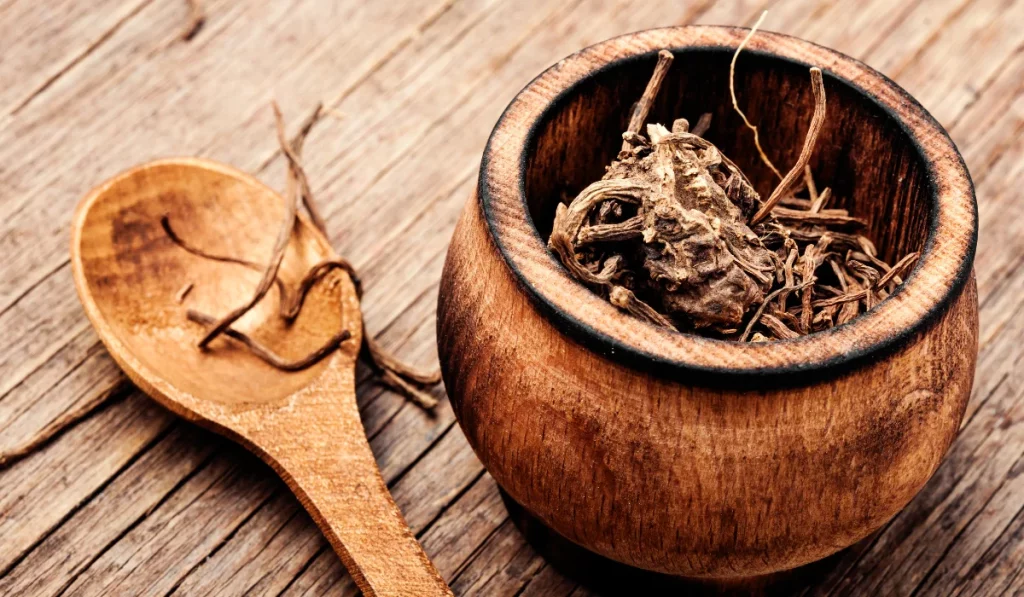6 Natural Sleep Aids for Seniors

Table of Contents
For many older adults, getting a good night’s sleep isn’t as easy as it used to be. Sleep problems like trouble falling asleep, staying asleep, or waking up too early are common as we age.
Changes in the sleep-wake cycle, medical conditions, or side effects from medications can all play a role. Fortunately, there are natural sleep aids that can help you feel more rested without relying on stronger sleep medications or over-the-counter drugs.
In this article, we’ll explore six effective and safe natural sleep remedies for seniors. We’ll also share tips for improving your sleep habits and avoiding potential side effects.
Let’s get started!
Key Takeaways
- Seniors can use melatonin, chamomile, valerian root, and passionflower to improve sleep and relaxation safely.
- Magnesium, essential oils, and aromatherapy can create calming routines that make it easier to fall asleep.
- Sticking to a sleep schedule and avoiding screens before bed help natural remedies work better.
- Combining natural solutions, healthy habits, and a comfortable bedroom can improve sleep without relying on medication.
1. Melatonin Supplements

Melatonin is a hormone your body naturally produces to regulate your sleep-wake cycle.
As you age, your body may produce less melatonin, making it harder to fall or stay asleep. It can improve sleep issues like sleeplessness, trouble caused by jet lag, or changes in routine.
To use melatonin effectively, take a small dose (0.5-3 mg) about 30 minutes before bed. Start with the lowest dose to avoid feeling too sleepy the next day.
Be careful, as you might feel a little dizzy or get a mild headache.
Before taking melatonin, talk to your doctor, especially if you’re taking other medications or have conditions like high blood pressure.
2. Chamomile Tea

Chamomile tea is one of the most popular herbal remedies for improving sleep. It’s packed with antioxidants that promote relaxation, ease stress, and help you wind down for the night.
To make the most of it, make a cup of tea about 30 minutes before bedtime. Add a little honey for sweetness if you like.
It is safe for most people, but if you have allergies to plants like ragweed, you should be careful.
3. Valerian Root

Valerian root has been used for centuries as a remedy for sleep disorders like insomnia or sleep apnea. It works by increasing GABA (gamma-aminobutyric acid) levels in the brain, which helps calm the nervous system and promote relaxation.
When you’re having trouble sleeping, you can take valerian as a tea, capsule, or extract before bed. A common dose is 300-600 mg about an hour before bedtime.
While valerian root is generally well-tolerated, some people might feel a little dizzy or have an upset stomach. It is best for short-term use—check with your doctor if you want to use it longer.
4. Magnesium

Magnesium is an essential mineral that supports the nervous system, helps muscles relax, and promotes healthy sleep. Low magnesium levels are often linked to poor sleep quality, anxiety, and conditions like restless legs syndrome.
To boost magnesium levels, eat magnesium-rich foods like spinach, almonds, and bananas, or ask your doctor about dietary supplements.
Be mindful of the dosage, as too much magnesium can cause an upset stomach. Stick to the recommended dose to avoid problems.
5. Passionflower

Passionflower is a natural remedy known for its calming effects. It works by increasing GABA levels in the brain, which reduces stress and helps relax the mind.
You can take passionflower as tea or supplements, ideally about 30 minutes before bedtime. While passionflower is generally safe, some people may experience dizziness or nausea.
If you’re taking medications for heart disease or blood pressure, consult a healthcare provider to avoid potential drug interactions.
6. Essential Oils

Aromatherapy using essential oils, such as lavender, can help create a calming bedtime routine. Using lavender essential oil in a diffuser, adding it to a warm bath, or applying it to your pillow are effective ways to incorporate it into your nightly routine.
Combining aromatherapy with cognitive behavioral therapy (CBT) techniques can further enhance its benefits for managing sleep issues.
However, avoid direct skin contact without dilution, and be careful not to use too much, as strong scents can overwhelm sensitive individuals.
Sleep Habits to Support Natural Remedies
In addition to trying natural sleep aids, improving your daily habits can help tackle sleep problems. Here are some tips to consider:
- Go to bed and wake up at the same time every day, even on weekends, to help regulate your circadian rhythms.
- Limit screen time before bed. The blue light from devices can disrupt melatonin production and your sleep-wake cycle.
- Avoid FDA-approved over-the-counter antihistamines for long-term use. While active ingredients like diphenhydramine or doxylamine may provide short-term relief, they can lead to drowsiness, drug interactions, or dependency over time.
- Keep your bedroom cool, quiet, and dark to encourage a good night’s sleep. Adjusting your body temperature with a light blanket can also help.






